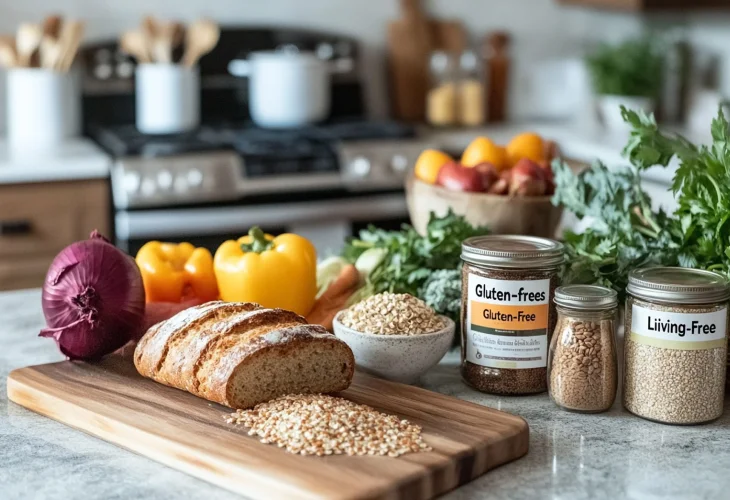Health and Nutrition
Living with Celiac Disease: A Complete Guide to a Healthy Gluten-Free Lifestyle
Learn how to manage celiac disease with confidence — understand the signs, adjust your diet, and embrace a gluten-free lifestyle for better health and well-being

Celiac disease is a chronic autoimmune disorder in which the body reacts adversely to gluten — a protein found in wheat, barley, and rye. For those with celiac, consuming gluten can damage the lining of the small intestine and hinder the absorption of essential nutrients. However, with awareness, proper dietary guidance, and the right support, it’s entirely possible to lead a healthy, fulfilling life.
What Is Celiac Disease and How Is It Diagnosed?
Celiac affects the digestive system and presents with a wide range of symptoms, including:
Abdominal pain, diarrhea, or constipation
Weight loss and iron-deficiency anemia
Chronic fatigue
Joint or muscle pain
Non-typical symptoms like skin rashes (dermatitis herpetiformis)
Diagnosis is typically made through a blood test to detect specific antibodies, followed by a small intestine biopsy for confirmation.
Gluten-Free Living: Challenge or Opportunity?
While a diagnosis may initially feel overwhelming, transitioning to a gluten-free diet can open the door to a more mindful and health-focused lifestyle. These are some helpful strategies:
1. Learn to Read Food Labels
Gluten can hide in unexpected places like sauces, spices, or even cosmetics. Always look for "gluten-free" labels and carefully review ingredient lists.
2. Build a Celiac-Friendly Kitchen
Stock your home with naturally gluten-free foods such as alternative flours (like almond, corn, or rice), legumes, fruits, vegetables, and gluten-free grains like quinoa and amaranth. Avoid cross-contamination with utensils or appliances like shared toasters.
3. Dine Out with Confidence
When eating at restaurants, inform the staff about your gluten sensitivity and ask about preparation methods. Many restaurants now offer dedicated gluten-free menus.
4. Consider Nutritional Supplements
Celiac can interfere with the absorption of vital nutrients such as iron, calcium, and vitamin D. Consult a dietitian to explore appropriate supplements.
5. Seek Social Support
Talk to family and friends about your dietary needs. Consider joining a celiac support group to exchange advice and stay motivated.
Health Benefits of a Gluten-Free Diet
Although going gluten-free can be challenging, the benefits are significant:
Symptom Relief: Digestive discomfort and fatigue usually improve with gluten avoidance.
Improved Health Awareness: A gluten-free lifestyle often leads to a more nutrient-rich diet centered around fruits, vegetables, and whole gluten-free grains.
Empowerment and Balance: Sticking to a tailored diet brings a sense of control and peace of mind, making daily life easier and more joyful.
Living with celiac disease may require adjustments, but it also presents a chance to embrace a more conscious and healthy way of living. With time, you’ll discover a variety of culinary options and support systems that make this journey one of flavor, wellness, and happiness.
Keep in mind that challenges are often the beginning of a new path. With the right mindset, you’ll find a routine that strengthens you and leads to a more fulfilling life.

